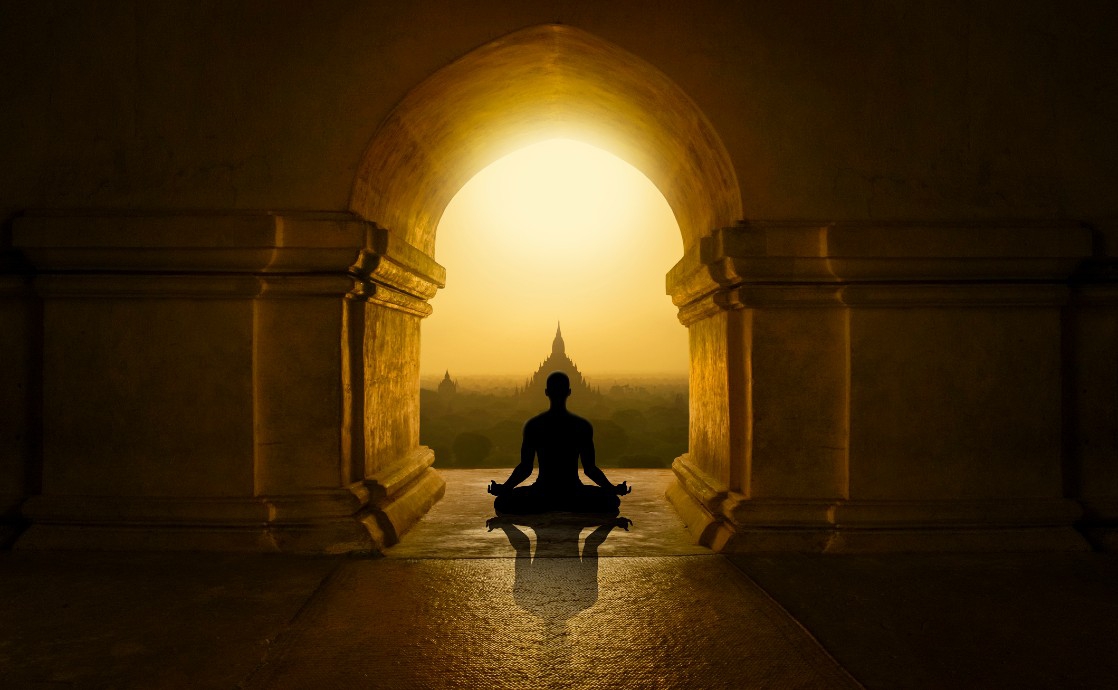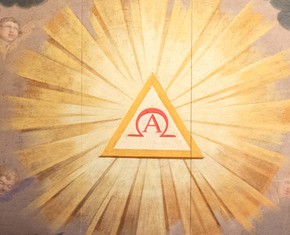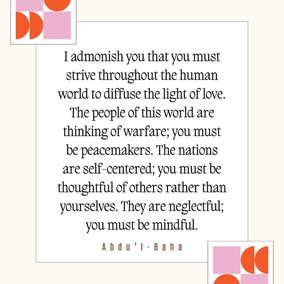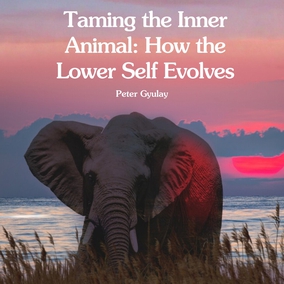The views expressed in our content reflect individual perspectives and do not represent the authoritative views of the Baha'i Faith.
Western Buddhists sometimes argue that the Buddha was just a man and not a prophet, special messenger of God, a Christ or a Chosen or Enlightened One.
It’s not an easy argument to make, especially because most people understand that the word Buddha itself, a title given to Siddhartha Gautama, means “the Enlightened One,” not just one among a bunch of enlightened ones.
RELATED: Are Buddhist Scriptures Authentic?
This “just-a-man” viewpoint does not accord with how millions of Buddhists understand the Buddha. The countless temples that dot the East showing the Buddha in superhuman communion with Being itself, or actually being that Being, tell a very different story.
Millions of Buddhists take daily refuge with the three jewels of Buddhism: the Buddha, the Law, and the Community. This is not a secular act; it means aligning oneself with the soteriological teachings of Buddhism, its community, and also with the divine agent who brought them.
Recent scholarship argues that from the earliest times, the Buddha was venerated as a semi-divine being, one of a series of divine teachers or Buddhas. Andrew Skilton, Senior Research Fellow in Buddhist Studies at King’s College London, writes in “A Concise History of Buddhism”:
It is important to stress that, despite modern Theravada teachings to the contrary (often a sop to skeptical Western pupils), he was never seen as being merely human. For instance, he is often described as having the thirty-two major and eighty minor marks or signs of a mahāpuruṣa, “superman”; the Buddha himself denied that he was either a man or a god; and in the Mahāparinibbāna Sutta he states that he could live for an aeon were he asked to do so.
Many Buddhists in the West like to say that we are all buddhas — but this is only true to the degree that we partake of Buddha nature, and no one reaches it.
When the followers of the Buddha gain enlightenment, they share in the glory of Buddhahood and partake of his nature in the same way that Christians partake of the nature of Christ when they truly follow him. But Christians who follow Christ do not become the founders of a new religion, nor do followers of the Buddha. Their light is reflected, not primary, and they never become equal to Jesus or Buddha. The Baha’i teachings portray this relationship between human beings and the Creator’s prophets and messengers in much the same way:
… the perfect man, the Prophet, is one who is transfigured, one who has the purity and clearness of a perfect mirror — one who reflects the Sun of Truth. Of such a one — of such a Prophet and Messenger — we can say that the Light of Divinity with the heavenly Perfections dwells in him.
If we claim that the sun is seen in the mirror, we do not mean that the sun itself has descended from the holy heights of his heaven and entered into the mirror! This is impossible. The Divine Nature is seen in the Manifestations and its Light and Splendor are visible in extreme glory.
Therefore, men have always been taught and led by the Prophets of God. The Prophets of God are the Mediators of God. All the Prophets and Messengers have come from One Holy Spirit and bear the Message of God, fitted to the age in which they appear. The One Light is in them and they are One with each other. But the Eternal does not become phenomenal; neither can the phenomenal become Eternal.
RELATED: Baha’u’llah as the Future Buddha, Continued
The Buddha is called Tathagata in Buddhist scripture. Literally the word means “Thus Come,” like other prophets, Buddhas and avatars. In Iti-vuttaka 112, the Buddha explained the meaning as follows:
In the world, together with the world of the gods [devas], with its tempters [maras], its holy ones [brahmas], its recluses and priests [brahmins], together with all the hosts of devas and mankind, the Tathagata is all-conquering, unconquered by any, he is the all-seeing Controller. Therefore is he called Tathagata.
These all-seeing Controllers are not just men, and they are very rare. As the Buddha himself explained:
The Tathagata, brethren, who, being Arahant [perfected or liberated], is fully enlightened, He it is who doth cause a Way to arise which hath not arisen before: who doth bring about a Way not brought about before: who doth proclaim a Way not proclaimed before: who is the knower of a Way, who understandeth a Way, who is skilled in a Way. And now, brethren, His disciples are wayfarers who follow after Him. That, brethren, is the distinction, the specific feature which distinguishes the Tathagata who, being Arahant, is Fully Enlightened, from the brother who is freed by insight.
It’s quite clear that the Buddha was not just another religious teacher. There is authority in his teachings. When disciples follow the way revealed by the Buddha, they are following him. He is the way for the salvation of his people, the same way that Christ revealed. The Buddha of Buddhism, like the Christ of Christianity, stands in the exact center of the spiritual universe. He is the granter of salvation and the revealer of the way. He is loved beyond any mortal comparison and his words are regarded as sacred. In short, Buddhism was and is a divine religion sharing common foundations with other religions. As Abdu’l-Baha, one of the central figures of the Baha’i Faith, pointed out in a talk he gave in the United States in 1912, Buddha’s essential teachings serve us still:
Blessed souls — whether Moses, Jesus, Zoroaster, Krishna, Buddha, Confucius or Muhammad — were the cause of the illumination of the world of humanity. How can we deny such irrefutable proof? How can we be blind to such light?
… these holy souls were all sent of God. All of them have sacrificed life, endured ordeals and tribulations in order that They might educate us. How can such love be forgotten? The light of Christ is evident. The candle of Buddha is shining. The star of Moses is sparkling. The flame ignited by Zoroaster is still burning. How can we deny Them?
















Comments
Sign in or create an account
Continue with Googleor